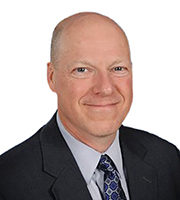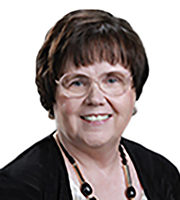Laboratory Certification and Accreditation: CAP & A2LA Discuss the Most Common Deficiencies and How Labs Should Prepare for Coming Changes
Recorded webinar Wednesday, March 28, 2018
Get up-to-date on the latest issues that catch labs off-guard during accreditation assessments and surprise visits by CLIA inspectors!
Order DVD Now
Compliance with CLIA and other regulations is getting both tougher and more complex. Many labs report that assessments and CLIA inspections of their labs are becoming more rigorous and they’ve found themselves scrambling to respond to the unexpected deficiencies identified during these inspections.
To help all CLIA-certified clinical laboratories stay up-to-date with the latest developments, Dark Daily has arranged two special webinars that will give participants access to representatives from all four primary accrediting bodies with deeming authority from CMS to accredit clinical laboratories to the requirements of CLIA.
Part one of this two-part webinar series features accreditation experts from the College of American Pathologists (CAP) and the American Association of Laboratory Accreditation (A2LA) and is entitled “Laboratory Certification and Accreditation: CAP & A2LA Discuss the Most Common Deficiencies and How Labs Should Prepare for Coming Changes,” and takes place on Wednesday, March 28, at 1:00 PM EDT.
Order DVD Now
Recent reports indicate that regulatory inspections of clinical laboratories are getting tougher. Some pathologists and medical lab managers acknowledge that they’ve had to scramble in response to the unexpected deficiencies identified by Clinical Laboratory Improvement Amendments (CLIA) inspectors following inspections of their labs.
These developments make it more important than ever that clinical laboratories work to become “inspection ready.” At the same time, it is essential that every laboratory compliance officer stay up to date with changes in how CLIA and other regulatory inspections are conducted. Many things are changing in the accreditation, certification, and inspection of clinical laboratories in the United States.
Your two expert speakers on this webinar are Denise Driscoll of the CAP and Randall Querry from A2LA. Chair for the program is Nora Hess from Chi Solutions, an Accumen Company. You’ll get from each of these experts their organization’s list of the Top 10 Deficiencies identified during lab assessments over the past year, and learn about the changes in emphasis coming with how each of the organizations assesses laboratories. (Hear during the April webinar from The Joint Commission and COLA).
The Top 10 Deficiencies lists you’ll see can alert you to similar issues in your own laboratory, allowing you to address them effectively before your next assessment or CLIA inspection. Medical directors of CLIA labs will be particularly interested in the most common deficiencies identified that involve their oversight, review, and involvement. Multiple issues are involved, ranging from the lab’s QA/QC activities to documentation of method validation and verification.
Not surprisingly, high rates of deficiencies identified by the different accrediting organizations include the regular inspection, testing, and maintenance of lab instruments and equipment, as well as the many issues and problems associated with proficiency testing (PT).
Also expect plenty of discussion about competency, which has become a hot issue during many lab inspections. It is essential for every laboratory’s compliance that appropriate competency practices be implemented and properly documented. During this webinar, you’ll learn where most labs fail to meet requirements in this important area of compliance.
Here’s just some of what you’ll learn during this indispensable 90-minute session
- Hear about the “Top 10 Deficiencies” from the accrediting agencies and identify potential regulatory problems in your lab
- Learn the top few deficiencies that inspectors look for and how to avoid them
- Prepare for consistent regulatory readiness through a better understanding of the regulatory process
- Get strategies and tips for maintaining regulatory readiness at all times, not just when preparing for an inspection
- Real-world examples of how and why some labs did poorly during on-site inspections
- Learn how laboratory regulatory and accrediting agencies work together to ensure compliance
- Avoid unwelcome publicity, expensive citations or stiff fines, loss of reimbursement or even certification were lab regulators to find deficiencies
- Interact directly with accreditation organizations in a non-inspection setting, and much, much more!
Order DVD Now
THE DARK REPORT WEBINAR AT A GLANCE
DATE: Wednesday, March 28, 2018
TIME: 1 PM EDT; 12 Noon CDT; 10 AM PDT
PLACE: Your computer and/or speakerphone
COST: $195 per site (unlimited attendance per site) through 3/23/18, $245 thereafter
TO REGISTER: Click here or call 512-264-7103
Given the importance of compliance with CLIA requirements and the many changes happening in laboratory regulation, this is a must-attend session for all laboratory managers and medical directors, lab compliance officers and lab QA/QC managers who recognize the potential negative impact to their labs, should deficiencies be spotted in operations or staff practices during a future inspection.
Keep in mind that another unique feature of this webinar is its interactive nature—submit your own specific questions to the experts and ensure that you get the insights you need directly from the organizations who accredit your laboratory to the requirements of CLIA.
The webinar’s cost to ensure your lab’s compliance is far outweighed by the risk of being found deficient—making this information-packed session an incredible value for all laboratories that have a CLIA accreditation—so order now to ensure your team’s place!
Coming April 25, Part 2 in the series:
“Laboratory Certification and Accreditation: The Joint Commission & COLA Discuss
the Most Common Deficiencies and How Labs Should Prepare for Coming Changes”
Speakers:

Denise Driscoll, MS, MT(ASCP)SBB — Senior Director, Laboratory Accreditation and Regulatory Affairs, College of American Pathologists, Northfield, IL.
Driscoll has been with the CAP since 1995. Since 2004, she has been responsible for the overall management of accreditation decisions, accreditation requirements, and regulatory and customer relationships. In 2011, she received the CAP’s Laboratory Accreditation Program Service Award to recognize her significant contributions to CAP Accreditation.

Randall Querry, Accreditation Manager — Clinical, American Association for Laboratory Accreditation (A2LA), Frederick, MD.
Querry has been with A2LA since 1998. In his current role, he directs the daily accreditation operations for clinical areas of accreditation. He is also responsible for overseeing the accreditation services officers responsible for laboratories in the clinical areas.

Nora L. Hess, MBA, MT(ASCP), PMP — Senior Consultant, Operations Management, Chi Solutions an Accumen Company, San Diego, CA.
Hess has more than 20 years of experience as a health care administrator, with particular expertise in strategic planning, process redesign, compliance, quality management, and cost reduction. Currently, she performs a variety of operational studies for Chi clients, including operations assessments, quality audits, lean design, acquisition due diligence and integration project management, and consolidation assessment and facilitation.

